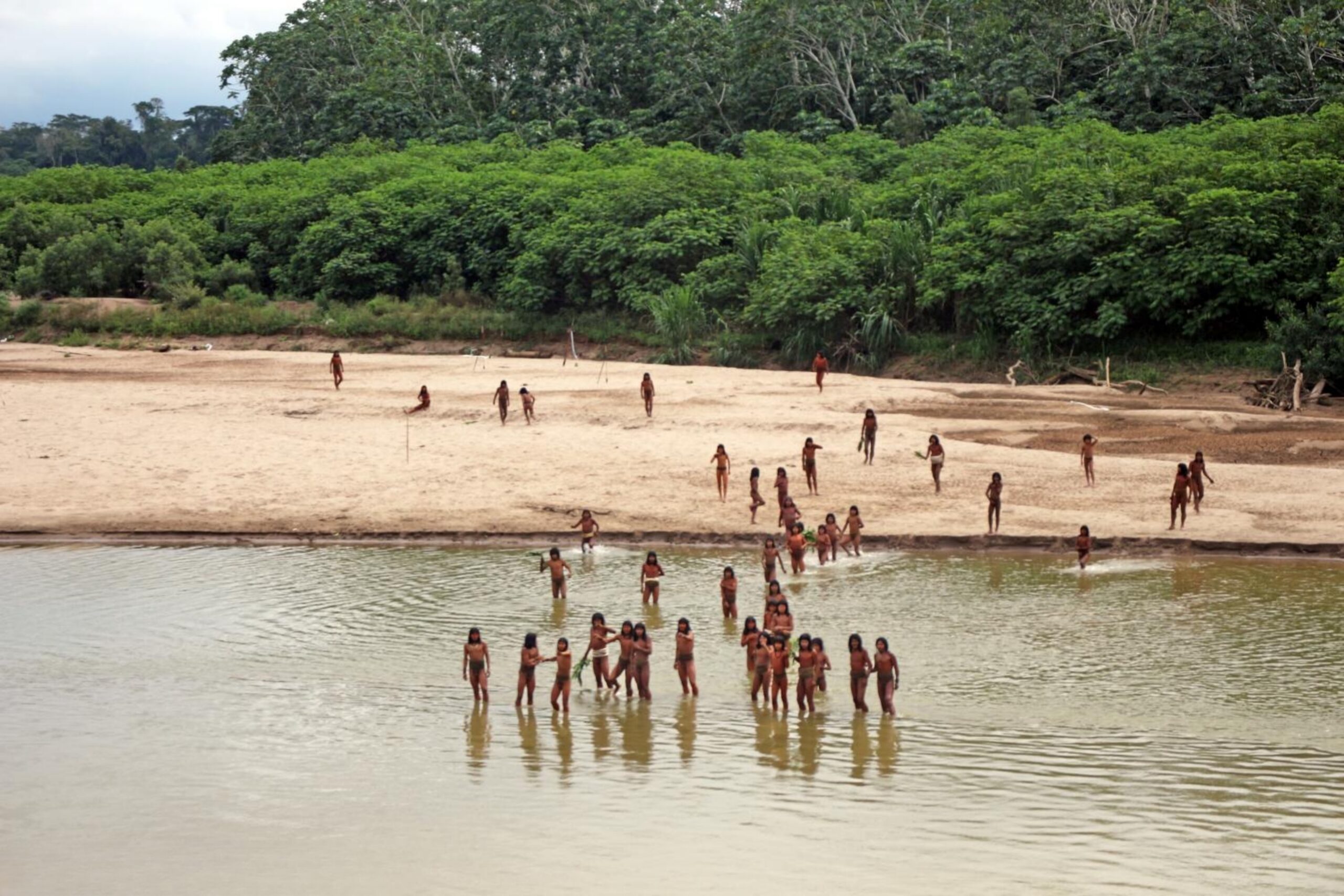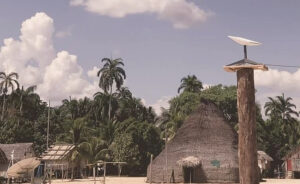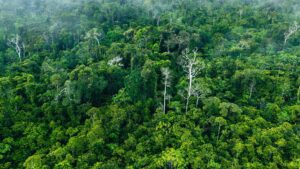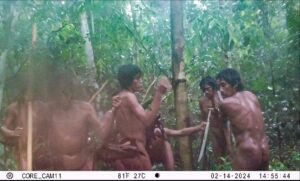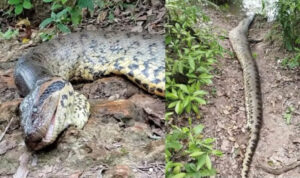In a situation that humanitarians call a “disaster in the making,” loggers are encroaching on an uncontacted tribe in the Peruvian Amazon.
Survival International, a nonprofit that advocates for indigenous people worldwide, recently showed a video of several dozen Mashco Piro people on a riverbank. They are just several kilometers away from a prospective logging site. According to the nonprofit, the footage depicts a dangerous incursion. If the loggers and the natives cross paths, violence or disease could break out.
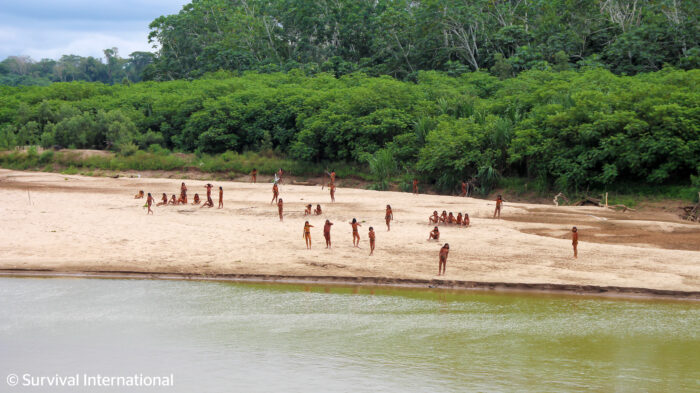
Dozens of Mashco Piro people are at risk in the loggers’ plan.
The last time the two groups clashed in 2022, tribespeople attacked workers with two-meter-long arrows, killing a 21-year-old and injuring his 54-year-old companion.
In the Survival International statement, Alfredo Vargas Pio, President of the local indigenous organization Fenamad, blamed the Peruvian government for putting the tribe in jeopardy.
“This is irrefutable evidence that many Mashco Piro live in this area, which the government has not only failed to protect but actually sold off to logging companies. The logging workers could bring in new diseases which would wipe out the Mashco Piro, and there’s also a risk of violence on either side, so it’s very important that the territorial rights of the Mashco Piro are recognized and protected in law,” Pio said.
Disputed territory
Since uncontacted tribes avoid interaction with outsiders by definition, understanding where they do and don’t live can be difficult. Legally, the Mashco Piro’s land exists as a reserve right next to a 50,000-hectare logging concession owned by Canales Tahuamanu, or Catahua.
The Peruvian government granted the rights to both tracts in 2002. But it almost immediately became clear that the isolated group ranged well beyond the reserve’s borders.
In 2016, a panel from the ministry that handles Peru’s indigenous affairs found that the Mashco Piro were using land on 14 separate concessions. The panel recommended expanding the reserve and paying the difference to the affected businesses. However, the measure died on its way through the government.
Meanwhile, the situation in the Amazon began to worsen. Amid the employee slayings in 2022, Catahua sued locals advocating for the Mashco Piro in one village. A year later, a U.N. envoy asked the company to halt logging in the area, also alleging possible “forced contact” with the Mashco Piro.
In a Washington Post interview, the lawyer representing Catahua denied its workers had ever contacted the tribe.
History (and future?) of violence
This is the next chapter in a narrative of harassment that has plagued the Mashco Piro’s relationship with outsiders for over a century.
Rubber tycoon Carlos Fermin Fitzcarrald commanded a private army to slaughter most of the tribe in 1894. The episode forced the survivors deeper into the Amazon and opened a cultural wound that would not heal.
Survival’s recent images show over 50 Mashco Piro people near Monte Salvado, a village inhabited by their close cousins, the Yine, in southeast Peru. Seventeen more later appeared near a neighboring village.
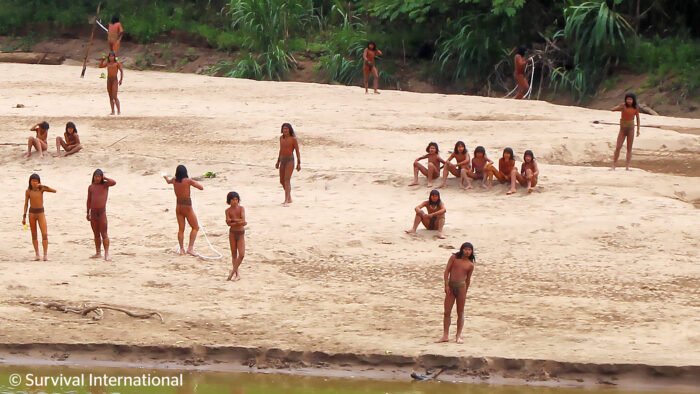
Mashco Piro people in the Monte Salvado and Puerto Nuevo area.
It’s a stone’s throw away from Catahua’s next logging target, according to Survival. And the less-confrontational Yine previously told the nonprofit that the Mashco Piro “angrily denounced” loggers’ incursion on their land.
For companies like Catahua, regulations enforce sustainable practices — in theory. In one 2014 study, a team of international lawyers found evidence that regulatory documents actually open the door for rampant illegal logging. Among the 609 concessions active at the time, the group suspected “major violations” on 68% of them, even under the supervision of authorities.
International support for indigenous people’s land rights is widespread. The U.N. Declaration on the Rights of Indigenous Peoples, International Labour Organization, and the Inter-American Human Rights Commission all recognize the rights of indigenous people on their traditional lands. And U.N. guidelines on uncontacted peoples restrict outsiders from forcing contact upon them.
As Catahua poises to open operations at the new site, the threat of more violence looms.
“The Mashco Piro are desperate. Those arrows are the proof,” Julio Cusurichi, an Indigenous leader Amazon icon, told the Post. “They would not have acted that way unless they were forced to.”
